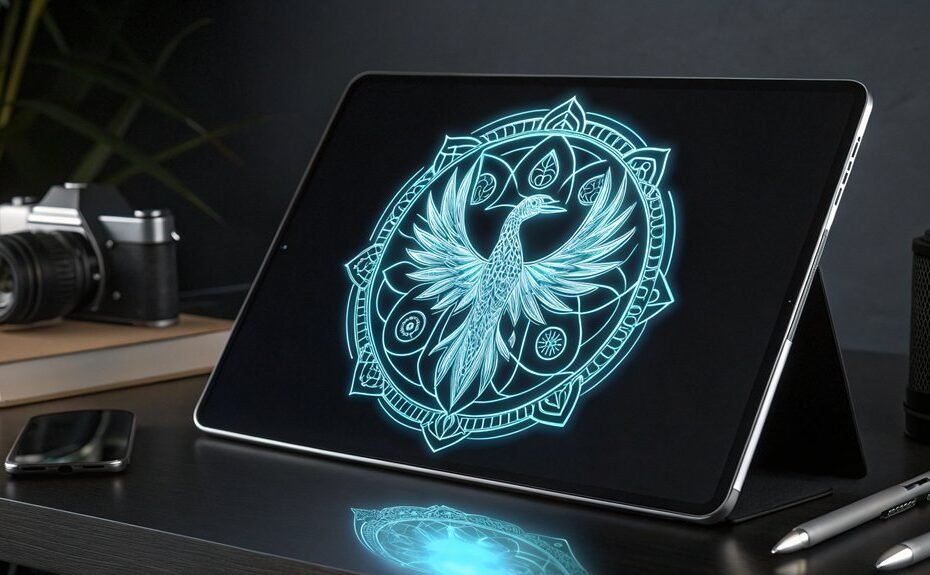Leading AI tattoo design platforms in 2025 include Canvas AI Studio, offering free generation of custom designs with professional-grade results. TattooMatrix provides unlimited tattoo mockups through advanced machine learning algorithms at no cost. DesignFlow AI allows users to create and modify custom artwork using sophisticated AI tools without subscription fees. These emerging platforms demonstrate how artificial intelligence is democratizing access to professional tattoo design capabilities, with new features continually enhancing their functionality.
The scenery of digital design tools continues to evolve rapidly, with artificial intelligence and collaborative features reshaping the industry's future. In the specialized domain of AI tattoo design, several platforms have emerged as frontrunners by leveraging advanced technology while maintaining accessibility for users of varying skill levels.
Adobe's Creative Cloud suite, particularly Photoshop and Illustrator with Firefly integration, stands at the forefront of AI-assisted tattoo design. These tools offer sophisticated generative fill capabilities that allow artists to seamlessly remove unwanted elements and create custom tattoo designs through AI-powered vector graphics. The platform's thorough feature set, though requiring a subscription, provides professional-grade results that have made it an industry standard. The steep learning curve may require significant time investment for newcomers to master the software's complex features.
Adobe's Firefly-integrated Creative Cloud leads the AI tattoo design revolution, offering professional-grade tools for seamless, customizable artwork creation.
Canva has positioned itself as a cost-effective alternative, offering AI-assisted design features through its accessible platform. With free plans and premium options starting at $14.99 monthly, users can create custom tattoo designs using an intuitive interface. The platform's AI integration helps users generate and modify designs quickly, making it particularly suitable for those new to digital design.
Affinity Designer has gained recognition for its vector capabilities and one-time purchase model, presenting a viable option for tattoo artists seeking professional tools without recurring costs. The software's customizable elements, including specialized brushes and symbols, provide the precision necessary for detailed tattoo design work. Its compatibility with industry-standard file formats guarantees seamless collaboration with other design tools and tattoo studios.
These tools represent a significant shift in the tattoo design industry, where traditional hand-drawing methods are increasingly complemented by digital solutions. The integration of AI technology has democratized access to professional-quality design tools, while maintaining the artistic integrity fundamental to tattoo creation.
As these platforms continue to evolve, they are expected to incorporate more advanced AI features, improved collaboration capabilities, and refined user interfaces. The development of these tools reflects broader trends in the design industry, where AI assistance and cloud-based collaboration have become standard features rather than luxury additions.
For tattoo artists and enthusiasts, these platforms offer varying levels of accessibility, from Canva's user-friendly approach to Adobe's professional-grade capabilities, making certain that users can find tools that match their specific needs and skill levels. The continued advancement of AI technology suggests that these tools will become increasingly sophisticated while maintaining their focus on user accessibility and design quality.
Most-Asked Questions FAQ
Can Ai-Generated Tattoo Designs Be Legally Copyrighted?
AI-generated tattoo designs face legal uncertainties regarding copyright protection. Current laws lack clear definitions for AI art ownership, making traditional copyright claims challenging without significant human artistic modification.
How Accurate Are AI Tattoo Generators in Representing Skin Tone Variations?
AI tattoo generators show limited accuracy in skin tone representation, struggling with nuanced variations and realistic shading. They work best as preliminary visualizations rather than precise predictors of final results.
Will Tattoo Artists Accept Designs Created by AI Generators?
Tattoo artists show mixed acceptance of AI-generated designs, with most viewing them as complementary tools rather than replacements. Many welcome AI for inspiration while maintaining traditional craftsmanship in execution.
Are There Cultural Sensitivity Filters in AI Tattoo Generation Tools?
Current AI tattoo generators lack explicit cultural sensitivity filters. Users and human artists must provide oversight to prevent cultural appropriation and guarantee respectful representation of cultural symbols.
Can AI Tattoo Generators Estimate the Healing Process of Specific Designs?
Current AI tattoo generators cannot estimate healing processes. They focus solely on design creation, leaving healing time predictions and aftercare recommendations to professional tattoo artists' expertise.
